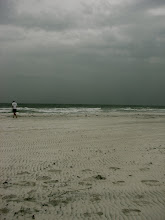We played all the games you would expect: tag, hide and seek, two-square and four-square, kick ball, doctor, war. We had a few dirt clod battles when new homes were under construction (these could be painful games--dirt clods instead of snow balls because it never snowed [or barely snowed] in Vancouver--and only the hardiest of us played this game) and there were a few fights, mainly just wrestling matches. We played a game called--and I'm not sure about this--Spud, where you through the ball up in the air and everyone ran and then the ball-catcher called out freeze and through the ball at the nearest person--something like that. Then there was red light/green light, there was the statue game and other physical games. There was our tree house out back and the swing set where we had no swings and we just did things on the poles, there was the sandbox where we had elaborate games, including a train made out of coffeee cans and such. And then there were the two games of imagination: Boxes and Paper Stuff.
These two games were led by Oldest Brother, pretty much. I don't recall Second Oldest Brother playing them much, but the rest of us did (but maybe not Youngest Brother, as, he was pretty young), but neighborhood kids played. These games were very basic in concept.
Boxes was simply taking cardboard boxes and cutting them down to make castles and forts out of them. Now, theye were huge boxes that we climbed into, no they were for plastic toys and "dolls" and such to live in. But these box-homes became very elaborate, with rooms and additions and working drawbridges--all made by ourselves, not bought. We drew on them and wrote on them and kept them in our house to be pulled out when we wanted to play. Because of oldest brother, there were kings and queens and wizards and magic things. It was all based on things hae (and we) had seen or read: King Arthur and Greek Myth and Grimm Fairy Tales and just stuff from our imagination. We used plastic toys and also just household finds to invent this world. I guess maybe soap operas played a role (and TV shows such as Bewitched, the Munsters, Addams Family), because there was also a on-going social network among each of our sets of characters, and each kid had their own family of people (or, in my case, creatures) that had their own continuing storylines that interacted with the storylines or narratives of the other kids' creations. It was pretty complex.
Paper Stuff was like that, too. With Paper Stuff we had big binder notebooks where the pages were homes for our paper doll creations. The first page might be a lawn, the second the front of the castle and then the rooms after that. The thing was, we'd glue the edges of pages and stick them together then cut doors and windows on one page so that they could open, so that our characters could go inside and the pages would hold them in there. We drew and colored all our own pages, we created our own paper characters and cut thyem out and created lives for them to live. Now, this wasn't just your ordinary paper dolls. One, we created the whole thing from blank pages. Two, they were not dolls. Three, we had complex narratives with--again--soap opera like dramas between characters and overall story arcs. The characters themselves were not exactly human. Yes, we used animals and creatures from Mythology, but Oldest Brother's main creatures were Itts, based off of Cousin Itt from the Adams Family TV show (oh yeah, there were also "Things", big hand-people, based off the same show: Itts and Hands). I mainly used monsters and animal stuff. We had Vampire Itts and Ghost Things and this and other creatures--this based off the show Dark Shadows, I think, as well as Sword in the Stone and Mary Poppins and the like (A Wrinkle in Time, no doubt). But it was all our own imagination that made it work, that provided the narrative. That made things come alive.
It's difficult to remember. It's difficult to explain and describe these two games, Boxes and Paper Stuff. But they took up vast hours of our free time. We built them ourselves, drew and colored them, breathed life into these plastic and metal and paper creations. Their stories spanned years. This was all in Vancouver. I don't recall us playing with these things in Tennessee. In Tennessee there were different kids and we were older, new things and ideas possessed us.
But in Vancouver, Washington on a rainy day (or sunny day, we usually played these games outdoors) give us some paper or cardboard, some scissors, glue, tape, some crayons and we could invent a world.
